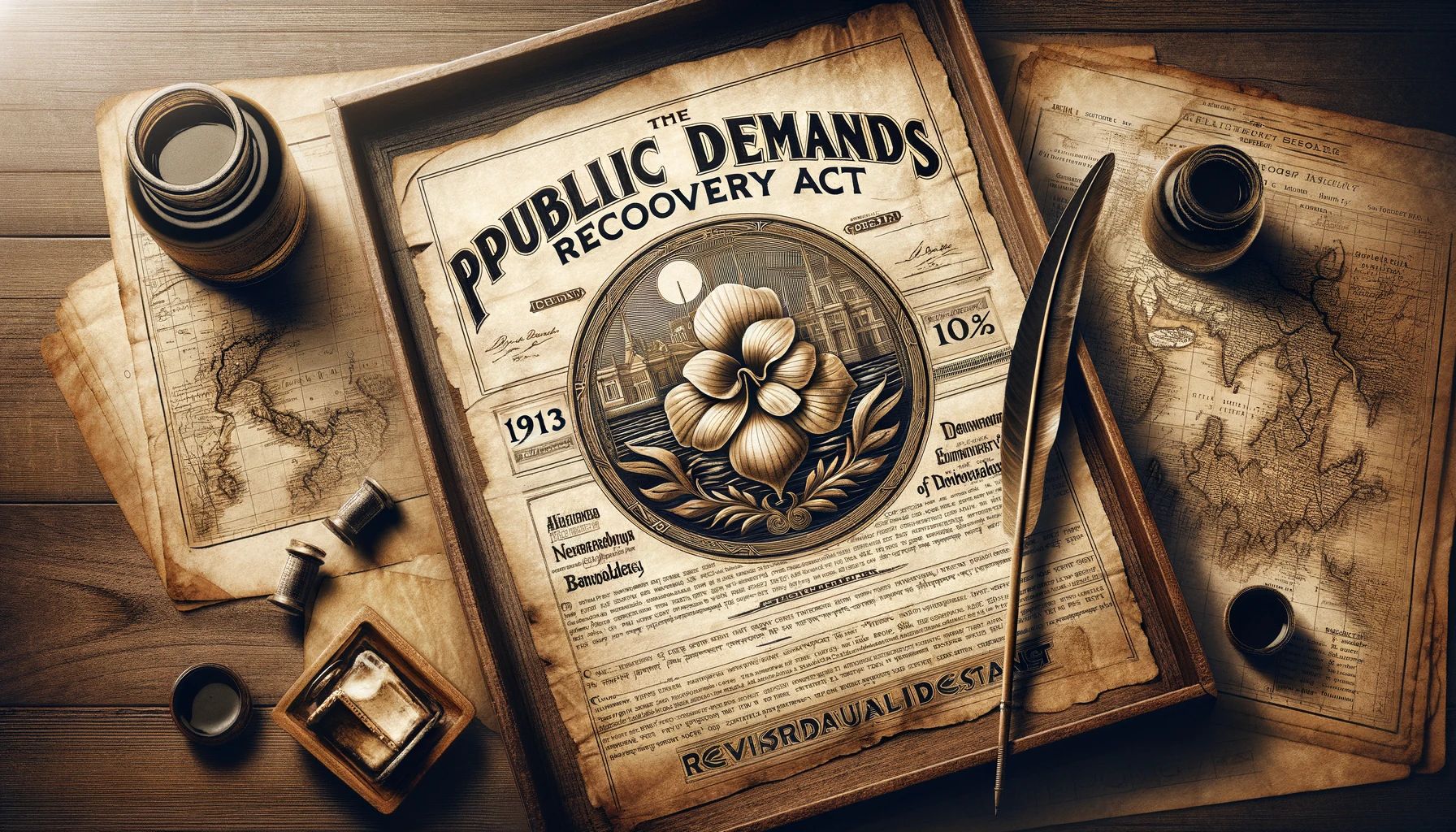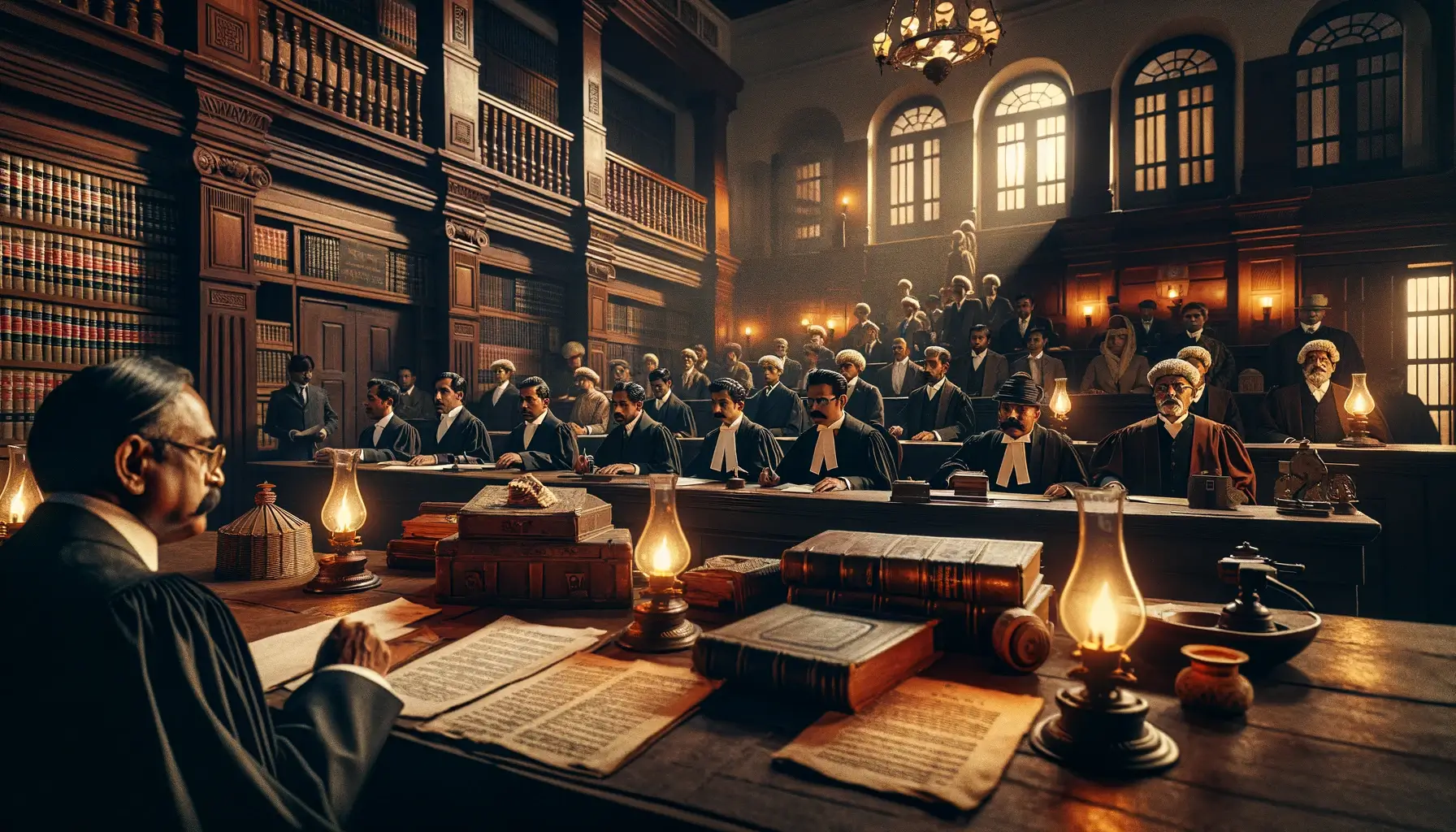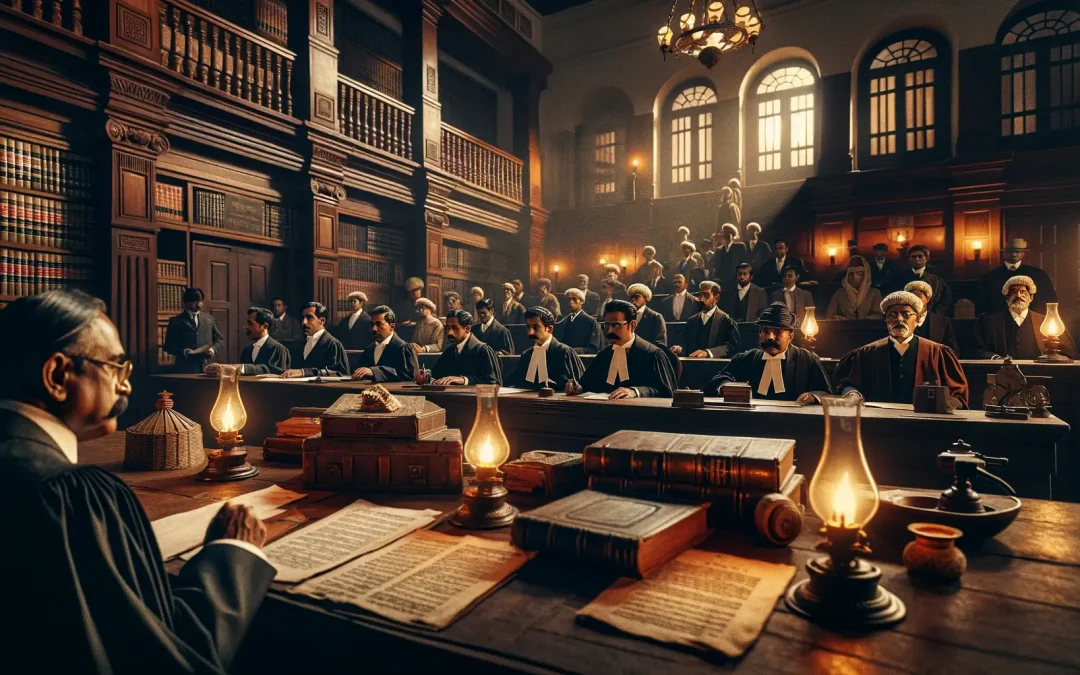The enactment of The Public Demands Recovery Act, of 1913 played a pivotal role in streamlining the recovery of government dues. The Act introduced an efficient and expedited mechanism for handling matters related to public demands. Let’s navigate through the step-by-step process under this significant legal framework.
Contents
- 1 The Public Demands Recovery Act, 1913 in Bangladesh
- 2 Identification of Public Demands
- 3 Public Demand Recovering Authority Section 3(3)
- 4 Judicial Recognition of Certificate Officer
- 5 Bank’s Role in Certificate Cases
- 6 Procedure for Filing a Certificate Case
- 7 Get Legal Advice From CLP
- 8 Frequently Asked Questions
The Public Demands Recovery Act, 1913 in Bangladesh
The Public Demands Recovery Act of 1913 established procedures for efficient recovery of government dues, defining public demands and empowering Certificate Officers to handle them.
Under this act, certain cases may be filed as certificate cases, subject to specific criteria outlined in the Artha Rin Adalat Ain 2003. The process involves filing by the Certificate Officer, service of notice to the debtor, and a petition process for denying liability.
Limitation periods apply, with exemptions and applications as per the Limitation Act 1908. Appeals can be made within specified timelines, with different appeal destinations depending on the authority. Revision processes involve higher authorities such as the Collector, Commissioner, or Board of Land Administration.
Legal assistance for certificate cases is available from Counsels Law Partners (CLP), a prominent law chamber in Bangladesh, offering expertise in navigating through the complexities of the Public Demands Recovery Act and related legal procedures.

The Public Demands Recovery Act of 1913 in Bangladesh, revisited in 2024, embodies a pivotal legal framework aimed at facilitating the recovery of public debts. Rooted in historical context, this act underscores the government’s commitment to efficient fiscal management and debt resolution.
Against the backdrop of contemporary economic challenges, it stands as a cornerstone for ensuring financial stability and bolstering public revenue collection.
Through legislative amendments and governmental initiatives, this act continues to play a vital role in shaping Bangladesh’s fiscal policy and enforcing legal mechanisms for debt recovery.
Identification of Public Demands
Section 3(6) of the Act defines “public demand” as any arrear or money mentioned or referred to in Schedule I, and includes any interest which may, by law, be chargeable thereon up to the date on which a certificate is signed under part II.
Public Demand Recovering Authority Section 3(3)
The Certificate Officer (C.O.) is empowered to sign a certificate for demands payable to the Collector or any public demand payable to someone other than the Collector.
Certificate-officer” means a Collector, a Upazila Nirbahi Officer, a Upazila Magistrate, and any officer, appointed by a Collector [, with the sanction of the Commissioner] to perform the functions of a Certificate-officer under this Act.
Judicial Recognition of Certificate Officer
A Certificate-officer shall be deemed to be a Court, and any proceeding before him shall be deemed to be a civil proceeding within the meaning of section 14 of the Limitation Act, 1908.
Bank’s Role in Certificate Cases
According to Section 5(5) of the Artha Rin Adalat Ain 2003, even if the loan recoverable is considered a ‘Public Demand,’ the suit for recovery must be instituted under the Artha Rin Adalat Ain 2003.
However, suits for claims not exceeding Taka 5,00,000/- by state-owned financial institutions, including Bangladesh Krishi Bank and Rajshahi Krishi Unnayan Bank, may be filed as certificate cases under the Public Demand Recovery Act, of 1913.

Procedure for Filing a Certificate Case
1. Filing by Certificate Officer (Section 4):
-
- When the Certificate-officer is satisfied that any public demand payable to the Collector is due, he may sign a certificate, in the prescribed form, stating that the demand is due, and shall cause the certificate to be filed in his office.
2. Requisition for Certificate (Section 6):
-
- On receipt of any such requisition, the Certificate-officer, if he is satisfied that the demand is recoverable and that recovery by suit is not barred by law, may sign a certificate, in the prescribed form, stating that the demand is due; and shall include in the certificate the fee (if any) paid under section 5, sub-section (2); and shall cause the certificate to be filed in his office.
3. Service of Notice (Section 7):
-
- When a certificate has been filed in the office of a certificate officer, under section 4 or section 6, he shall cause to be served upon the certificate-debtor, in the prescribed manner, a notice in the prescribed form and a copy of the certificate.
4. Filing of Petition Denying Liability (Section 9):
-
- (1) The certificate-debtor may, within thirty days from the service of the notice required by section 7, or, where the notice has not been duly served, then within 30 days from the execution of any process for enforcing the certificate, present to the Certificate-officer in whose office the certificate is filed, or to the Certificate-officer who is executing the certificate, a petition, in the prescribed form, signed and verified in the prescribed manner, denying his liability, in whole or in part.
- (2) If any such petition is presented to a Certificate-officer other than the Certificate-officer in whose office the original certificate is filed, it shall be sent to the latter officer for disposal.
5. Hearing and Determining Petition (Section 10):
-
- The certificate officer in whose office the original certificate is filed shall hear the petition, take evidence (if necessary), and determine whether the certificate-debtor is liable for the whole or any part of the amount for which the certificate was signed; and may set aside, modify or vary the certificate accordingly:
- Provided that, if the Certificate-officer is not the Collector, and considers that the petition involves a bona fide claim of right to property, he shall refer the petition to the Collector for orders; and the Collector, if he is satisfied that a bona fide claim of right of property is involved, shall make an order canceling the certificate.
6. Execution of Certificate (Section 11):
-
- (a) A certificate filed under section 4 or section 6 may be executed by
- (b) the Certificate-officer in whose office the original certificate is filed, or
- (c) the certificate officer to whom a copy of the certificate is sent for execution under section 12, sub-section (1).
Limitation (Section 56)
- Exemption from Specific Sections: Sections 6 to 9 of the Limitation Act, 1908, do not apply to suits, appeals, or applications under this Act.
- Application of Limitation Act: Except for the exemptions mentioned, the provisions of the Limitation Act, 1908, shall apply to all proceedings under this Act as if a certificate filed hereunder were a decree of a Civil Court.
Filing an Appeal (Section 51)
Identify the Appropriate Authority: Determine whether the order was made by an Assistant Collector, Deputy Collector, or a Certificate-officer (excluding the Collector) or by the Collector.
Choose the Correct Appeal Destination: If the order is from an Assistant Collector, Deputy Collector, or a Certificate-officer, appeal to the Collector. If the order is from the Collector, appeal to the Commissioner.
Check for Limitations: File your appeal within fifteen days if it’s from an Assistant Collector or Deputy Collector’s order. If it’s from the Collector’s order, file it within thirty days from the date of the order.
Authorization and Transfer: The Collector, may, by order, with the previous sanction of the Commissioner authorize other officers to handle appeals and may transfer appeals to these authorized officers. Execution Stay: While the appeal is ongoing, the execution (action based on the order) may be stopped if the Appellate authority directs so.

Bar to Second Appeals (Section 52)
You cannot appeal again from any order of a Collector or an authorized officer once it has been passed on appeal.
Revision Process (Section 53)
- Collector’s Revision: The Collector may revise any order passed by a Certificate-officer, Assistant Collector or Deputy Collector under this Act.
- Commissioner’s Revision: The Commissioner may revise any order passed by a Collector under this Act.
- Board of Land Administration’s Revision: The Board of Land Administration may revise any order passed by a Commissioner under this Act and the order of the Board shall be final.
Review Process (Section 54)
Any order passed under this Act may, after notice to all persons interested, be reviewed by the officer who made the order, or by his successor in office, on account of mistake or error either in the making of the certificate or in the course of any proceeding under this Act.

Get Legal Advice From CLP
Counsels Law Partners (CLP) is a leading law chamber in Bangladesh. If you need assistance concerning Certificate Cases, the Barristers, Advocates, and legal experts at CLP in Gulshan, Dhaka, Bangladesh, are ready to help. For any queries or legal assistance, please reach us at
- E-mail: info@counselslaw.com, urgent@counselslaw.com
- Phone: +8801700920980. +8801947470606.
- Address: Jamilla Villa (3rd Floor), Flat No-C2, House No. 4/A/1, Road No. 02, Gulshan-1, Dhaka-1212.
Frequently Asked Questions
What is the Public Demands Recovery Act of 1913 in Bangladesh?
-
- The Public Demands Recovery Act of 1913 is a legal framework established in Bangladesh to facilitate the efficient recovery of government dues.
How does the Public Demands Recovery Act streamline the recovery of government dues?
-
- The Act defines procedures and empowers Certificate Officers to handle public demands, ensuring a systematic approach to debt recovery.
Who are Certificate Officers under the Public Demands Recovery Act, and what are their roles?
-
- Certificate Officers, including Collectors and designated officers, are authorized to sign certificates for public demands and oversee the recovery process.
What is the process for filing a certificate case under the Public Demands Recovery Act?
-
- The process involves filing by the Certificate Officer, service of notice to the debtor, and a petition process for denying liability.
What criteria determine whether a case can be filed as a certificate case under this act?
-
- Cases may be filed as certificate cases based on specific criteria outlined in the Artha Rin Adalat Ain 2003, ensuring eligibility and legal compliance.
What is the role of banks in certificate cases under the Public Demands Recovery Act?
-
- Banks may file suits for recovery under the Artha Rin Adalat Ain 2003, with exceptions for state-owned financial institutions for certain claims.
What are the limitations and exemptions concerning the Public Demands Recovery Act?
-
- The Act provides exemptions and limitations as per the Limitation Act 1908, ensuring adherence to legal timelines and procedures.
How can one file an appeal under the Public Demands Recovery Act, and what are the timelines involved?
-
- Appeals can be filed within specified timelines to the appropriate authority, depending on the origin of the order, ensuring due process and legal recourse.
What is the revision process for orders passed under the Public Demands Recovery Act?
-
- Orders may be revised by higher authorities such as the Collector, Commissioner, or Board of Land Administration, ensuring checks and balances in the system.
How can legal experts such as Counsels Law Partners (CLP) assist with certificate cases under this act?
-
- CLP provides legal assistance and expertise in navigating through the complexities of the Public Demands Recovery Act and related legal procedures, ensuring effective representation and guidance.


